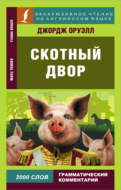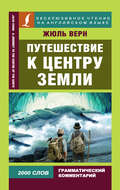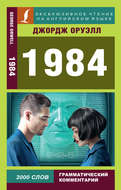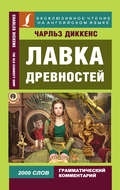Kitobni o'qish: «Финансист / The Financier»
© С.А. Матвеев, адаптация текста, словарь
© ООО «Издательство АСТ», 2020
Chapter I
A city of Philadelphia, whereFrank Algernon Cowperwood1 was born, was a city of two hundred and fifty thousand and more. It was set with handsome parks, notable buildings, but many of the things that we and he knew later were not then in existence – the telegraph, telephone, express company2, ocean steamer mails.
Cowperwood's father was a bank clerk at the time of Frank's birth, but ten years later, Mr.Henry Worthington Cowperwood3 became a promoted teller4. At once he told his wife to remove his family to a much better neighborhood, where there was a nice brick house of three stories. There was the probability that some day they would come into something even better, but for the present this was sufficient.
Henry Worthington Cowperwood was a man who believed only what he saw. He was at this time a significant figure—tall, lean, inquisitorial, clerkly—with nice, smooth whiskers coming to almost the lower lobes of his ears. He had a long, straight nose and a chin that tended to be pointed. His eyebrows were bushy, and his hair was short and smooth and nicely parted. He always worea frock-coat and a high hat5. And he kept his hands and nails immaculately clean.
Being ambitious to get ahead socially and financially, he was very careful of whom or with whom he talked. He was much afraid of expressing a rabid or unpopular political or social opinion, though he had really no opinion to express.
Mrs. Cowperwood was a small religious woman, with light-brown hair and clear, brown eyes, who had been very attractive in her day, but had become rather prim and inclined to take very seriously the maternal care of her three sons and one daughter.
Frank Cowperwood, even at ten, was a natural-born leader. He was a sturdy youth, courageous and defiant. From the very start of his life, he wanted to know about economics and politics. He cared nothing for books. He was a clean, stalky boy, with a bright, incisive face; large, clear, gray eyes; a wide forehead; short, bristly, dark-brown hair. He had an incisive, quick-motioned manner. He never had an ache or pain, and ruled his brothers with a rod of iron. “Come on, Joe!” “Hurry, Ed!” These commands were issued in no rough but always a sure way, and Joe and Ed came.
He was always pondering. How did all these people get into the world? What were they doing here? Who started things? His mother told him the story of Adam and Eve, but he didn't believe it. There was a fish-market not so very far from his home, and there he liked to look at odd specimens of sea-life. One day he saw a squid and a lobster put in the tank, and in connection with them was witness to a tragedy which stayed with him all his life. The lobster was offered no food, as the squid was considered his rightful prey. The lobster leaped and grabbed the squid. The squid was too tired. It wasn't quick enough.
“That's the way it has to be,” Frank commented to himself. “That squid wasn't quick enough.”
The incident made a great impression on him. It answered in a rough way that riddle which had been annoying him so much in the past: “How is life organized?” Things lived on each other—that was it. Lobsters lived on squids and other things. What lived on lobsters? Men, of course!
And what lived on men? he asked himself. Was it other men? Wild animals lived on men. And there were Indians and cannibals. And some men were killed by storms and accidents.
He wasn't so sure about men living on men; but men did kill each other. How about wars and street fights?
He went on home quite pleased.
“Mother!” he exclaimed, as he entered the house, “He finally got him!”
“Got who? What got what?” she inquired in amazement. “Go wash your hands.”
“Why, that lobster got that squid!”
“Well, that's too bad. What makes you take any interest in such things? Run, wash your hands.”
But for days and weeks Frank thought of this event and of the life, for he was already pondering on what he should be in this world, and how he should get along. From seeing his father count money, he was sure that he would like banking; and Third Street, where his father's office was, seemed to him the cleanest, most fascinating street in the world.








